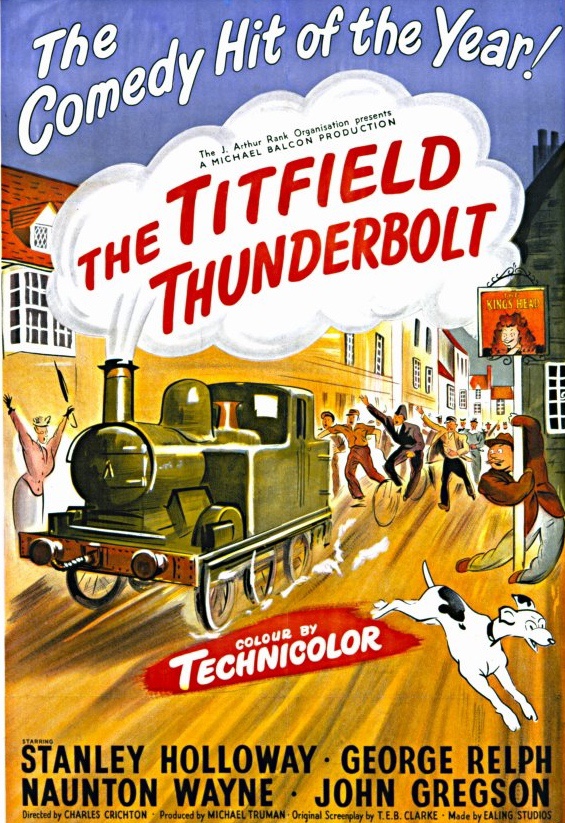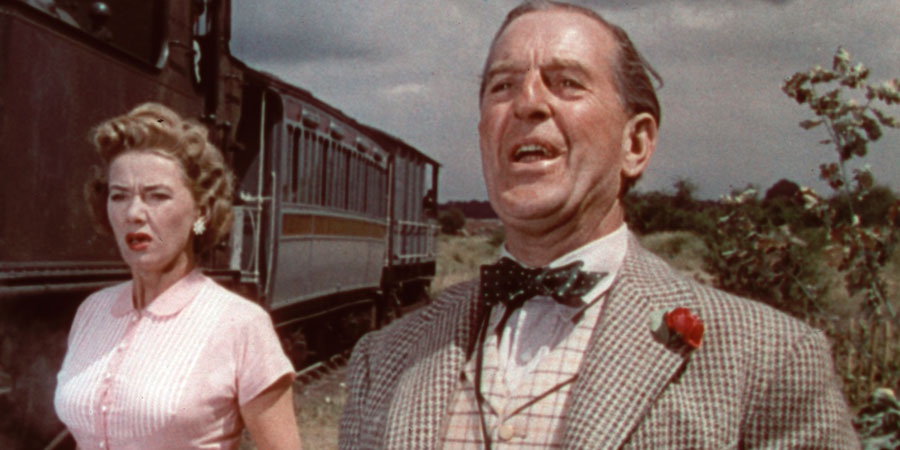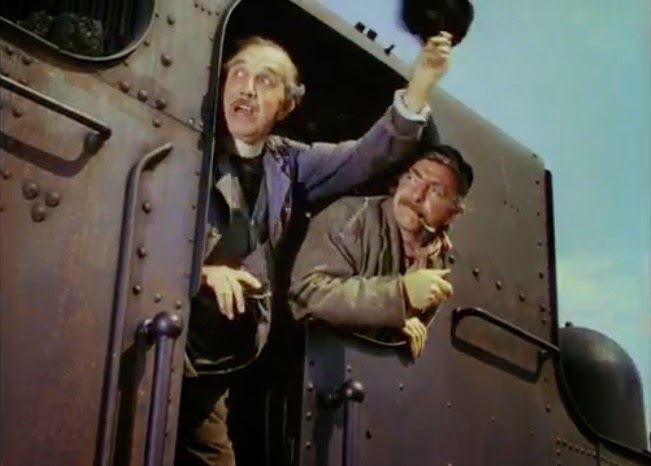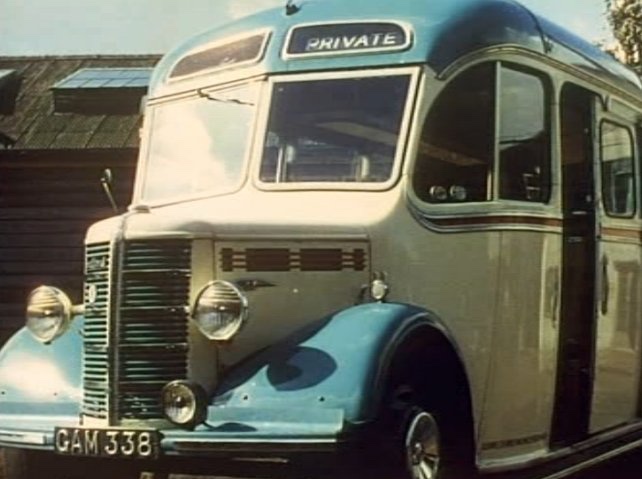

What a strange film! Strange, that is, by modern standards, rather than those of the day. Filmed in ‘glorious Technicolor’ – it was the first Ealing comedy filmed in the new format – it’s a picture postcard fantasy of a certain time in and idea of England.
In essence it’s a comedy about the beginnings of ‘heritage’ railways; as The State withdrew from steam locomotion, the public stepped in. Apparently it’s even based on a real Welsh example, which was allegedly the very first such heritage line. It’s noteworthy that this is a whole decade before the infamous Beeching axe would fall.

Visually it’s beautiful, a celluloid time-capsule. And it’s also quite sweet in how it portrays the era. There’s a just-post-WWII ‘Blitz spirit’, as when the passengers of the train all pitch in to get water, after the dastardly bus crew get Harry Hawkins (Sid James) to sabotage the water supply.
There are some thumping great ironies in there, as well; witness, for example, when there’s a joke about how, if the railway makes too much profit, it’ll be nationalised!
Modern history has demonstrated, over and over again, particularly under Toryism, that losses are usually nationalised (i.e. passed on to the public purse), whilst profit is privatised.

There are also all sorts of moments – for example at the public meeting, when Squire Chesterford (John Gregson) makes the case for the railway (as opposed to bus/road developments), on the basis of how it’ll change the nature of Titfield – that reflect what was considered, at the time, to make for a ‘good old fashioned’ British Utopia.
In this instance that revolves around the fear, also present in George Orwell’s very different 1984 (‘I am a name, not a number’!) that old country lanes will be tarmac’ed, and houses be numbered, rather than named.
Of course the quaint old trains were themselves, at one time, the harbingers of a modern industrialised doom. But now they are – and evidently even back in ‘53 they were – the stuff of ‘olde England’! There are many other little interesting insights into certain visions of how life was then (the squire and the poacher!), what constituted progress, and what makes for the ideal life.

One of the things I like most about this film is the saturated slightly gaudy colour, AKA Technicolor. It’s very like the intense colouring of some design and illustration of that era. And so many things, from the clothes, to furniture, cars, trucks, etc, are, or rather were, so much more aesthetically pleasing than the vast bulk of modern mass-produced tat we are surrounded by now.
For example, the old Bedford bus, of the villainous rivals of the loco’ lovers, Pearce & Crump, is gorgeous. I absolutely adore the upholstery fabric inside the bus:

It has to be admitted I was only half watching this delightful old film, whilst Teresa and I played our Sunday afternoon Scrabble game, in between World Cup match viewing. I, or we, really ought to watch it again and give it my/our full attention.
It seems to me a good solid old-fashioned dose of ‘50s period fun. Balcon-era Ealing film at its cosily British best. I’d definitely recommend it.
